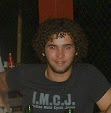Hans Rosling was a Swedish medical doctor, statistician, and educator of health care systems along the world. I was about to put IS when I noticed he died a month ago. He was an amazing public speaker and he was deeply concerned with how to pluralize knowledge on demographics to show real problems of the world in a non-dogmatic way. I think he was a believer on the fact that we can search for solutions to our local struggling in other parts of the world and/or other times. After all, there is enough data to examine all of those spatial and time dependencies, i.e, other political systems, cultures, ethnic composition, not only geography by itself, and History. TED has prepared a playlist only with his conferences.
Let it be this a tribute to his teachings.
But, actually, I wanted to show this incredible website envisioned by Rosling, Gapminder. There you can play yourself with demographic variables (e.g., annual income per person vs. life expectancy) having the time-evolution embedded into the same graph. You can divide the data by region, by countries, compare two countries track to our current situation, etc. Have a look yourself, you can directly interact with data and learn from it. Then you can ask questions as, what happen to this or that country in this period, etc. I hope it would come handy.
Let it be this a tribute to his teachings.
But, actually, I wanted to show this incredible website envisioned by Rosling, Gapminder. There you can play yourself with demographic variables (e.g., annual income per person vs. life expectancy) having the time-evolution embedded into the same graph. You can divide the data by region, by countries, compare two countries track to our current situation, etc. Have a look yourself, you can directly interact with data and learn from it. Then you can ask questions as, what happen to this or that country in this period, etc. I hope it would come handy.

Comments
Post a Comment